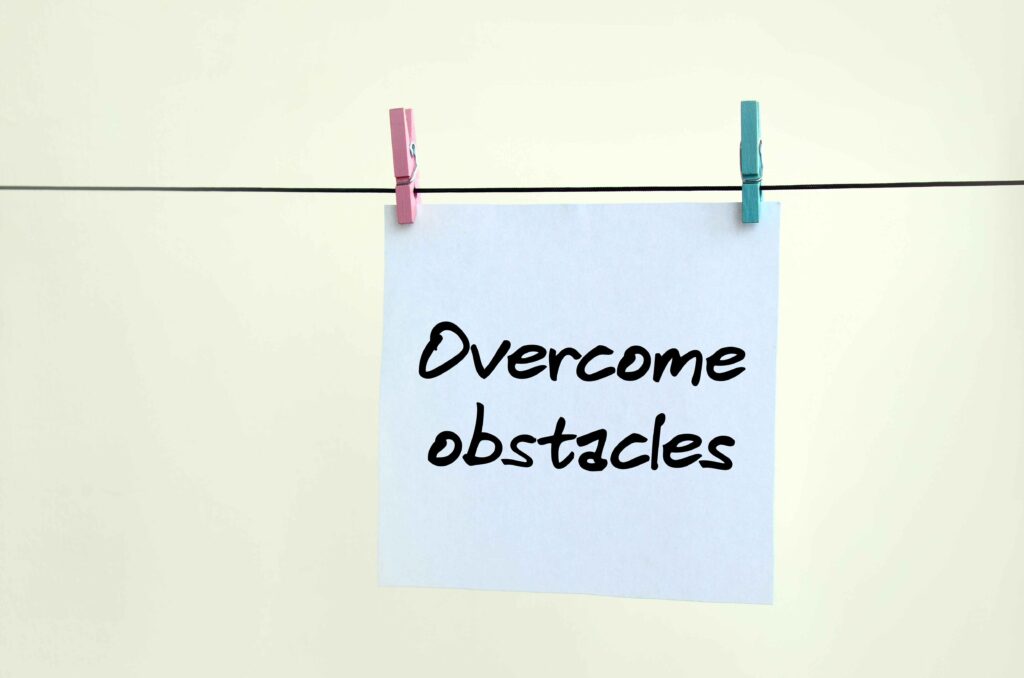Life is a journey, a beautiful tapestry of experiences, emotions, and moments that shape who we are and what we become. But amidst the chaos and demands of daily life, it’s easy to lose sight of the essence of our existence. The search for purpose, fulfilment, and meaning becomes a lifelong pursuit, as we yearn for a deeper understanding of ourselves and our place in the world. In this fast-paced and ever-changing world, it is crucial to pause and reflect on what truly matters to us. What brings us joy? What ignites our passion?
Understanding the concept of purpose, fulfilment, and meaning

What is the essence of life? This question has puzzled philosophers, scholars, and individuals alike for centuries. At its core, the essence of life is about finding purpose, fulfilment, and meaning. Purpose gives our lives direction, fulfilment brings us satisfaction and contentment, and meaning provides us with a sense of significance and connection.
The purpose is not a fixed destination but rather a journey of self-discovery and growth. It’s about understanding our unique talents, passions, and values and aligning them with our actions. When we have a clear sense of purpose, every aspect of our lives becomes infused with meaning, and we are driven to live authentically and make a meaningful impact on the world.
Fulfilment, on the other hand, is the deep sense of satisfaction and joy that comes from living in alignment with our purpose. It’s about finding fulfilment in the present moment, rather than constantly chasing an elusive future goal. When we are fulfilled, we experience a profound sense of contentment and gratitude for the life we have created.
Meaning, perhaps the most elusive of the three, is the feeling of significance and connection to something greater than ourselves. It’s about finding purpose and fulfilment within the context of a larger whole, whether that be our relationships, community, or the world at large. Meaning gives our lives depth and richness and provides us with a sense of belonging and purpose.
The importance of finding purpose in life

Finding purpose in life is not just a nice-to-have; it is essential for our overall well-being and happiness. Research has consistently shown that individuals who have a strong sense of purpose are more resilient, have better mental health, and are more likely to thrive in all areas of life.
When we have a clear sense of purpose, we have a reason to get out of bed in the morning. We are motivated to take action, overcome obstacles, and positively impact the world. Purpose gives our lives direction and meaning, and it provides us with a sense of fulfilment that is unmatched by any material possession or external achievement.
Moreover, the purpose has been linked to increased longevity. A study conducted by researchers at the University of Michigan found that individuals who reported a strong sense of purpose in life had a lower risk of mortality compared to those who felt their lives lacked meaning. Purpose not only adds years to our lives but also life to our years.
The different sources of fulfilment and meaning.
Fulfilment and meaning can be found in a myriad of places and experiences. While some find fulfilment through their careers or creative pursuits, others find it through their relationships, hobbies, or acts of service. The key is to identify what brings us joy, ignites our passion, and aligns with our values.
For some, fulfilment may come from making a difference in the lives of others. Whether it’s through volunteering, mentoring, or working in a helping profession, the act of contributing to something greater than we can bring a deep sense of fulfilment and meaning. Knowing that our actions have positively impacted someone else’s life can be incredibly rewarding.
Others find fulfilment in pursuing their passions and interests. Whether it’s playing a musical instrument, painting, writing, or exploring the great outdoors, engaging in activities that bring us joy and allow us to express ourselves can bring a profound sense of fulfilment. These activities provide an outlet for creativity, self-expression, and personal growth.
The benefits of living a purposeful life

Living a purposeful life has numerous benefits that extend beyond personal fulfilment. When we are living in alignment with our purpose, we become more focused, motivated, and resilient. We have a clear sense of direction and can make decisions that are in line with our values and goals.
Purpose also gives us a sense of belonging and connection. When we are living out our purpose, we attract like-minded individuals who share our values and passions. This sense of community provides support, encouragement, and a sense of belonging, which are essential for our overall well-being.
Moreover, living a purposeful life allows us to make a positive impact on the world. When we are aligned with our purpose, we can use our unique talents and strengths to contribute to something greater than ourselves. Whether it’s through our work, relationships, or acts of service, we have the power to make a difference in the lives of others and leave a legacy.
Strategies for discovering your purpose.
Discovering your purpose is a deeply personal and introspective journey. It requires self-reflection, exploration, and a willingness to challenge your beliefs and assumptions. Here are some strategies to help you uncover your purpose:
1. Reflect on your passions and interests: What activities bring you joy and make you lose track of time? What topics or causes ignite your curiosity and passion? Exploring your passions can provide valuable clues about your purpose.
2. Identify your strengths and talents: What are you naturally good at? What activities come easily to you? Our strengths and talents are often indicators of our purpose, as they are the areas in which we can make the greatest impact.
3. Clarify your values: What do you stand for? What principles guide your decisions and actions? Our values are an integral part of our purpose, as they shape our beliefs and the way we show up in the world.
4. Seek inspiration from others: Look for individuals who are living purposeful lives and find inspiration in their stories. Read books, listen to podcasts, or attend events that feature individuals who have found their purpose. Their experiences and insights can provide valuable guidance on your own journey.
5. Embrace experimentation and adaptability: Finding your purpose is not a linear process. It requires experimentation, trial and error, and a willingness to adapt. Be open to new experiences, take risks, and be willing to course-correct along the way.
Overcoming obstacles in finding purpose and fulfilment

Finding purpose and fulfilment is not always easy. There are often obstacles and challenges that stand in our way. Here are some common obstacles and strategies for overcoming them:
1. Fear of failure: Many individuals are held back by the fear of failure. They worry about what others will think, or they doubt their own abilities. To overcome this, it’s important to reframe failure as an opportunity for growth and learning. Embrace a growth mindset and see failure as a stepping stone on the path to success.
2. Comparison and self-doubt: It’s easy to compare ourselves to others and feel inadequate. Remember that everyone’s journey is unique, and what works for someone else may not work for you. Focus on your own strengths, values, and passions, and trust that you are on the right path.
3. Lack of clarity: Sometimes, we may feel stuck or unsure about our purpose. This lack of clarity can be paralyzing and prevent us from acting. To overcome this, break down your larger purpose into smaller, actionable steps. Focus on what you can do today to move closer to your purpose, rather than getting overwhelmed by the big picture.
4. External pressures and expectations: Society, family, and friends may have their own ideas about what we should do with our lives. It’s important to set boundaries and prioritize your own needs and desires. Be true to yourself and trust that you know what is best for you.
Cultivating a sense of meaning in everyday life
While finding purpose is essential, it’s also important to cultivate a sense of meaning in our everyday lives. Meaning can be found in the simplest of moments and experiences, if we approach them with mindfulness and intention. Here are some strategies for cultivating meaning in everyday life:
1. Practice gratitude: Take time each day to reflect on what you are grateful for. Gratitude shifts our focus from what is lacking to what is abundant in our lives. It helps us appreciate the small moments of joy and find meaning in the ordinary.
2. Be present: Mindfulness is a powerful tool for finding meaning in everyday life. When we are fully present now, we can experience a deep sense of connection and appreciation for the world around us. Whether it’s taking a walk in nature, savouring a meal, or having a meaningful conversation, being present allows us to find meaning in the here and now.
3. Find purpose in your work: Even if your job is not your ultimate purpose, you can still find meaning in the work you do. Look for ways to align your values and passions with your job responsibilities. Seek out opportunities for growth and contribution and find meaning in the impact you can make through your work.
4. Nurture relationships: Our relationships are a major source of meaning and fulfilment in our lives. Cultivate deep, meaningful connections with others, and invest time and energy into nurturing those relationships. Engage in acts of kindness, support others in their pursuits, and find meaning in the connections you create.
The role of relationships in finding purpose and fulfilment
Our relationships play a crucial role in finding purpose and fulfilment. They provide us with support, guidance, and a sense of belonging. Here are some ways relationships can contribute to our sense of purpose and fulfilment:
1. Support and encouragement: Our loved ones can provide the support and encouragement we need to pursue our passions and overcome obstacles. They can be our cheerleaders, offering words of encouragement and reminding us of our strengths and capabilities.
2. Mentorship and guidance: Having mentors and role models can be instrumental in finding our purpose. They can provide guidance, share their experiences, and offer valuable insights to help us.
3. Collaboration and connection: Meaningful relationships often involve collaboration and connection. When we connect with others who share our values and passions, we can collaborate on projects, initiatives, and causes that align with our purpose. These connections provide a sense of camaraderie and shared purpose, which can be incredibly fulfilling.
4. Accountability and growth: Our relationships can hold us accountable for our goals and aspirations. When we surround ourselves with individuals who are also striving for purpose and fulfilment, we are more likely to stay committed and motivated. They can challenge us to grow, push us out of our comfort zones, and provide constructive feedback that helps us become the best version of ourselves.
Balancing work and personal life in the pursuit of purpose

Finding purpose and fulfilment is not just about our careers; it’s about balancing all areas of our lives. Achieving a sense of balance between work and personal life is crucial for our overall well-being and happiness. Here are some strategies for finding balance:
1. Prioritize self-care: Take care of your physical, emotional, and mental well-being. Make time for activities that recharge and rejuvenate you, whether it’s exercise, meditation, hobbies, or spending time in nature. Self-care is not selfish; it’s necessary for us to show up as our best selves in all areas of life.
2. Set boundaries: Establish clear boundaries between work and personal life. Create designated times for work and leisure and stick to them as much as possible. Avoid bringing work home and make time for activities that bring you joy and fulfilment outside of work.
3. Delegate and ask for help: It’s important to recognize that we can’t do everything on our own. Delegate tasks at work and at home and ask for help when needed. Surround yourself with a support system that can assist you in achieving your goals and finding balance.
4. Practice time management: Effective time management is key to finding balance. Prioritize your tasks and allocate time for each one. Avoid multitasking and focus on one task at a time. Set realistic deadlines and avoid overcommitting yourself.
Embracing change and adapting your purpose throughout life
As we navigate through life, our purpose may evolve and change. Embracing change and being adaptable is essential for staying aligned with our purpose. Here are some ways to embrace change and adapt your purpose:
1. Embrace a growth mindset: See change as an opportunity for growth and learning. Embrace new experiences, challenges, and opportunities that come your way. Be open to new perspectives and be willing to adapt your purpose as you learn and grow.
2. Continually reassess your values and goals: Regularly reflect on your values and goals to ensure they are still aligned with who you are and what you want to achieve. As we evolve, our values and goals may shift, and it’s important to reassess and adjust accordingly.
3. Seek feedback and learn from failures: Feedback and failure can provide valuable insights and lessons. Seek feedback from trusted individuals and be open to constructive criticism. When faced with failure, reflect on what you can learn from the experience and use it to refine and adapt your purpose.
4. Embrace new opportunities: Be open to new opportunities that may come your way. Sometimes, unexpected opportunities can lead us down a path we never anticipated. Stay curious, be willing to take risks, and embrace the unknown.
The connection between purpose, fulfilment, and mental health
There is a strong connection between purpose, fulfilment, and mental health. When we have a clear sense of purpose, we are more likely to experience positive mental health outcomes. Here are some way’s purpose can benefit our mental health:
1. Increased resilience: Purpose provides us with a sense of direction and meaning, which can help us navigate through challenging times. When we have a strong sense of purpose, we are more resilient and better equipped to overcome obstacles and bounce back from adversity.
2. Greater life satisfaction: Living a purposeful life is associated with greater life satisfaction. When we are living in alignment with our purpose, we experience a deep sense of satisfaction and contentment. We are more likely to feel fulfilled and happy with our lives.
3. Reduced risk of mental health disorders: Research has shown that individuals who have a strong sense of purpose are less likely to develop mental health disorders such as depression and anxiety. Purpose provides a sense of meaning and connection, which can protect against the development of mental health issues.
4. Enhanced overall well-being: Purpose is a key component of overall well-being. When we have a clear sense of purpose, we experience greater well-being and fulfilment in all areas of our lives. Purpose provides us with a sense of direction, motivation, and connection, which are essential.

